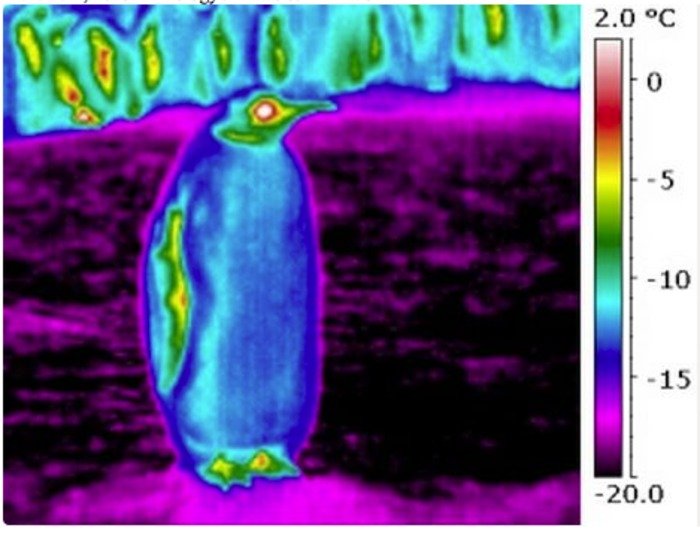Thermal image of penguin. Credit: Universite de Strasbourg and Center National de la Recherche Scientifique (CNRS), Strasbourg, France
GLASGOW, Scotland, March 7 (UPI) -- Emperor penguins allow their outer feathers to actually become colder than the surrounding air in order to minimize heat loss, European researchers say.
French and British scientist studying thermal images of penguins in Antarctica said they were surprised to discover the outer feathers that cover most of the penguin's body were actually 7 to 10 degrees Fahrenheit colder than the surrounding air.
"We didn't think a warm-blooded animal could ever have an outer surface temperature that was colder than its surroundings," lead study author Dominic McCafferty of the University of Glasgow said.
The researchers said the apparent anomaly appears to be the result of a phenomenon known as "extreme radiative cooling."
The penguins' protective coat radiates more heat into the colder sky than is absorbed from the surrounding air, causing the temperature at the surface of their feathers to fall below that of the surrounding air.
The end result, the researchers said, is that the penguins use the temperature difference to draw very tiny amounts of heat back to their feathers from the surrounding air, helping them to conserve energy.
It's not much, the researchers said, but when trying to survive in a very cold climate for very long periods of time, every little bit helps.
"The pure physics of heat transfer mean that Emperor penguins literally have no choice other than to be the coolest birds on the planet," McCafferty explained in a release from Biology Letters, the journal publishing the study.















